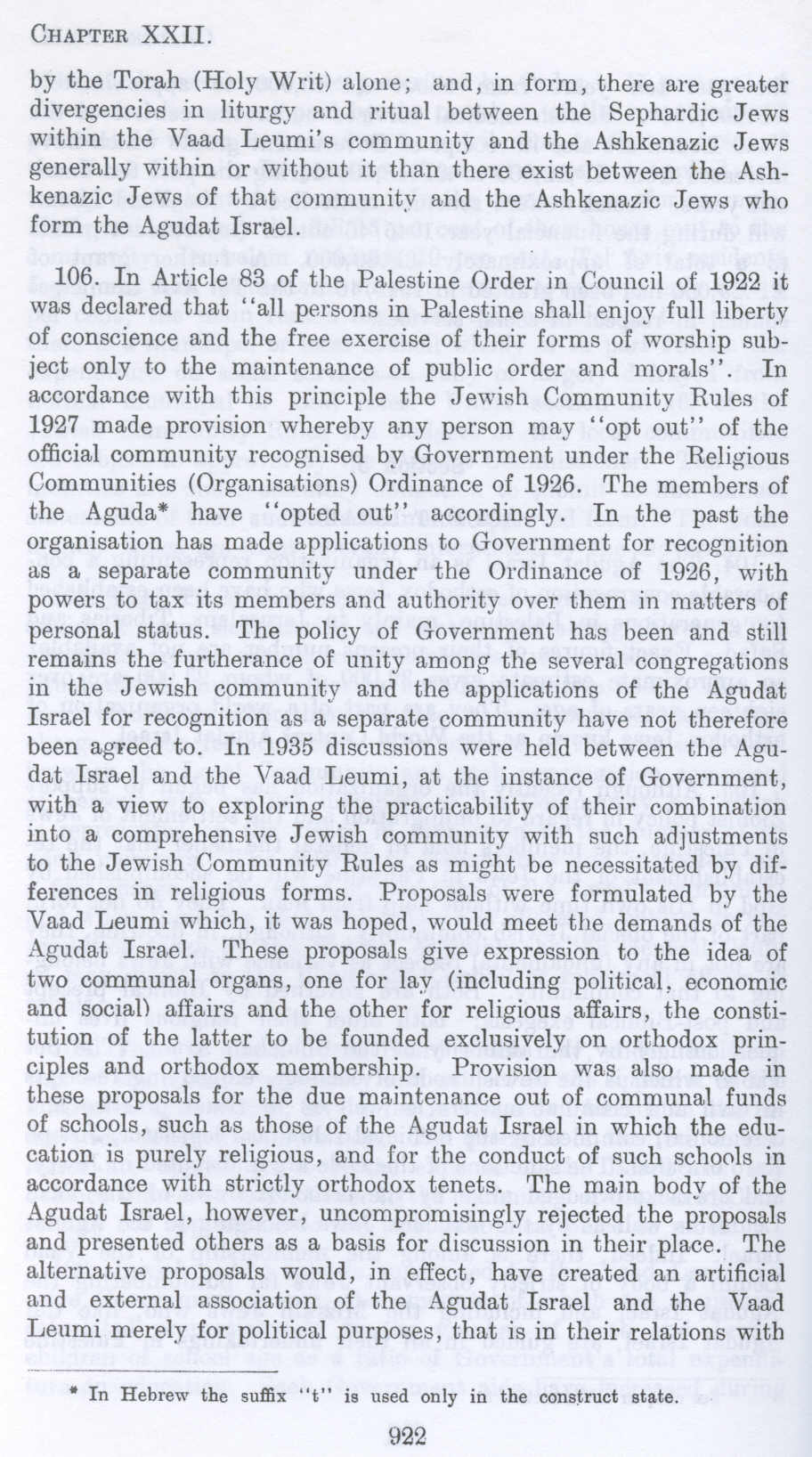| Prev | Next |  |
| Prev | Next |
| PalestineRemembered | About Us | Oral History | العربية | |
| Pictures | Zionist FAQs | Haavara | Maps | |
| Search |
| Camps |
| Districts |
| Acre |
| Baysan |
| Beersheba |
| Bethlehem |
| Gaza |
| Haifa |
| Hebron |
| Jaffa |
| Jericho |
| Jerusalem |
| Jinin |
| Nablus |
| Nazareth |
| Ramallah |
| al-Ramla |
| Safad |
| Tiberias |
| Tulkarm |
| Donate |
| Contact |
| Profile |
| Videos |
British Mandate: A Survey of Palestine: Volume II - Page 922 |
Disclaimer
The above documents, article, interviews, movies, podcasts, or stories reflects solely the research and opinions of its authors. PalestineRemembered.com makes its best effort to validate its contents.


Post Your Comment
*It should be NOTED that your email address won't be shared, and all communications between members will be routed via the website's mail server.
by the Torah (Holy Writ) alone; and, in form, there are greater divergencies in liturgy and ritual between the Sephardic Jews within the Vaad Leumi's community and the Ashkenazic Jews generally within or without it than there exist between the Ashkenazic Jews of that community and the Ashkenazic Jews who
form the Agudat Israel. .
106. In Article 83 of the Palestine Order in Council of 1922 it was declared that "all persons in Palestine shall enjoy full liberty of conscience and the free exercise of their forms of worship subject only to the maintenance of public order and morals". In accordance with this principle the Jewish Community Rules of 1927 made provision whereby any person may "opt out" of the official community recognised by Government under the Religious Communities (Organisations) Ordinance of 1926. The members of the Aguda" have "opted out" accordingly. In the past the organisation has made applications to Government for recognition as a separate community under the Ordinance of 1926, with powers to tax its members and authority over them in matters of personal status. The policy of Government has been and still remains the furtherance of unity among the several congregations in the Jewish community and the applications of the Agudat Israel for recognition as a separate community have not therefore been agreed to. In 1935 discussions were held between the Agudat Israel and the Vaad Leumi, at the instance of Government, with a view to exploring the practicability of their combination into a comprehensive Jewish community with such adjustments to the Jewish Community Rules as might be necessitated by differences in religious forms. Proposals were formulated by the Vaad Leumi which, it was hoped, would meet the demands of the Agudat Israel. These proposals give expression to the idea of two communal organs, one for lay (including political, economic and social) affairs and the other for religious affairs, the constitution of the latter to be founded exclusively on orthodox principles and orthodox membership. Provision was also made in these proposals for the due maintenance out of communal funds of schools, such as those of the Agudat Israel in which the education is purely religious, and for the conduct of such schools in accordance with strictly orthodox tenets. The main body of the Agudat Israel, however, uncompromisingly rejected the proposals and presented others as a basis for discussion in their place. The alternative proposals would, in effect, have created an artificial and external association of the Agudat Israel and the Vaad Leumi merely for political purposes, that is in their relations with
_______________________________________________________
* In Hebrew the suffix "t" is used only in the construct estate.
922